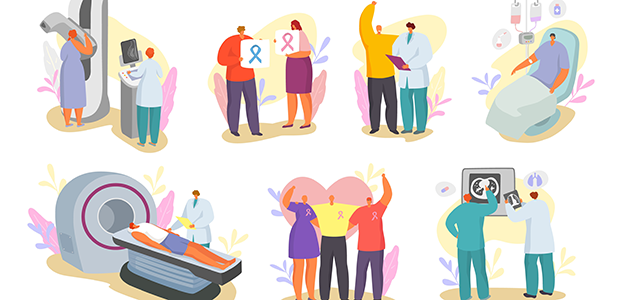
5 ways group risk benefits can support employees with cancer
Cancer is the main reason employers claim for their staff across all group risk benefits (employer-sponsored life assurance, income protection and critical illness), so it’s especially important that employers know how to make the most of the support available under these policies.
As National Cancer Survivors’ Day approaches on Sunday 5 June 2022, Katharine Moxham, spokesperson for GRiD, the industry body for group risk, explains how employers can support their employees who are affected by the disease:
1. Be aware that a person who has, or has had, cancer is protected under the Equality Act from unfair treatment at work for the rest of their life and this includes making reasonable adjustments to their working lives going forward too. Employers that have a group income protection policy in place will be able to seek help with this, ensuring that their employee is fully consulted and involved in the process.
2. Employers should ensure they are using all the extra support that is embedded into group risk benefits. This will often include access to an employee assistance programme (EAP); a second medical opinion service - which can be crucial in establishing correct diagnosis and the most appropriate treatment for cancer; support from oncologists, and HR support and advice.
3. Remember that EAPs can support line managers and HR teams too and that most group risk benefits will include access to this help. It’s vital to support line managers through this journey as many won’t have any idea where to start or how best to help their colleague.
4. Group income protection policies often provide access to vocational rehabilitation support which draws on a wide range of assessments, interventions and services provided by a range of healthcare professionals to help determine how an individual can stay in or be supported back to work.
5. There are lots of ups and down during an employee’s cancer journey, especially through the treatment cycle. Employers will find helpful support built into a group income protection plan in particular to provide advice about how to best manage a changing situation.
Katharine Moxham, spokesperson for GRiD said: “Cancer is the most prevalent cause of claims on employer-sponsored financial protection benefits but the advantages of these policies go beyond being simply a financial lifeline for staff and their families at the point of cancer diagnosis or death. We know that for many, having cancer is no longer necessarily the death sentence it once was, meaning many employees will want or need to return to work. Indeed, the workplace represents normality for most people, so being able to keep in touch or return part-time, helps to provide some much-needed consistency in their lives as well as a pay-out.
“Group risk benefits are invaluable in helping both the employer and employee navigate this journey with all the twists and turns it may take during the individual’s diagnosis, treatment and survival. No two roads from diagnosis through to being back in the workplace will be the same, so employees and employers should lean on all the resources and support that they have available to them which are provided at no extra cost within group risk policies.”

